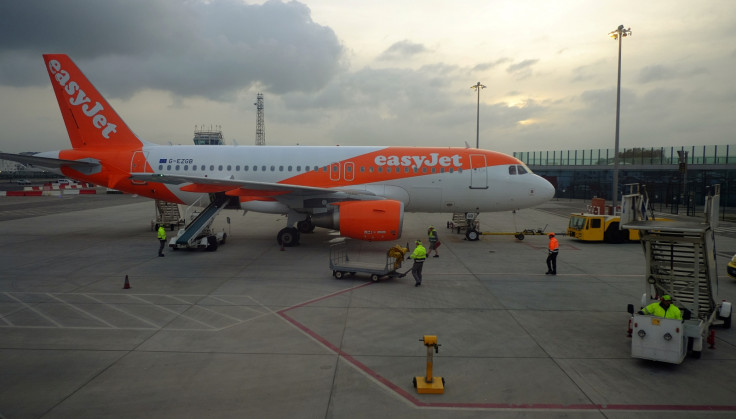EasyJet boosted by rivals' trouble but currency headwinds dent profits
Budget airline reports a 17% drop in full year pre-tax profits, while revenue climbs 8%.

Shares in easyJet soared over 6% early on Tuesday (21 November), after the budget airline said it was benefitting from the issues experienced by some of its rivals.
The airline flew a record 80 million passengers over the last 12 months, with capacity increasing 8.5% and load factor - a crucial gauge in the airline industry, which measures the number of seats filled on a plane - reaching a record high 92.6%.
The outlook is also positive for the Luton-based airline, which said forward bookings were ahead of last year at 88% for the first quarter, while headline cost per seat are expected to decline 2% next year.
In the latest set of financial results before outgoing chief executive Carolyn McCall leaves the company, easyJet added the turmoil experienced by some of its main competitors over the last few months had proved beneficial.
At the beginning of last month, Monarch, Britain's fifth-largest airline, entered administration after failing to secure a temporary extension to its Air Travel Organiser's Licence (ATOL) for the third time in four years and Ryanair was dealt a severe setback by its flights cancellations fiasco.
Meanwhile, Alitalia, Italy's flagship carrier, which filed for insolvency in April, is still looking for a buyer and Air Berlin filed for insolvency in August, after Abu Dhabi-based Etihad Airways, its main shareholder, withdrew its financial support following years of rising losses.
Last month, easyJet struck a €40m (£35m) deal with Germany's second-biggest airline to acquire some of the assets of the bankrupt carrier.
As part of the agreement, the FTSE 100-listed budget airline will buy some of Air Berlin's assets at Berlin's Tegel airport, including its landing slots, and leases for up to 24 A320 aircraft.
EasyJet, which also has a base at Schoenefeld airport, the German capital's other main aviation hub, said around 1,000 Air Berlin pilots and cabin crew will be taken on board as part of the deal.
However, it said on Tuesday that operations at Berlin's Tegel airport would run a headline loss of around £60m in 2018, with one off costs of around £100m.
Meanwhile, the budget airline's pre-tax profits in the year to 30 September fell 17.3% year-on-year to £408m, in line with guidance given last month, while revenue grew 8.1% to £5bn. McCall explained the headline profits figure suffered from currency headwinds, which resulted in a £101m impact.
"Our planned approach [...] has put EasyJet at a strategic advantage during a period when there have been bankruptcies and some airlines have struggled operationally," she said.
"EasyJet's model is resilient and sustainable and we now have a huge amount of positive momentum which will enable the airline to continue to grow profitably."






















